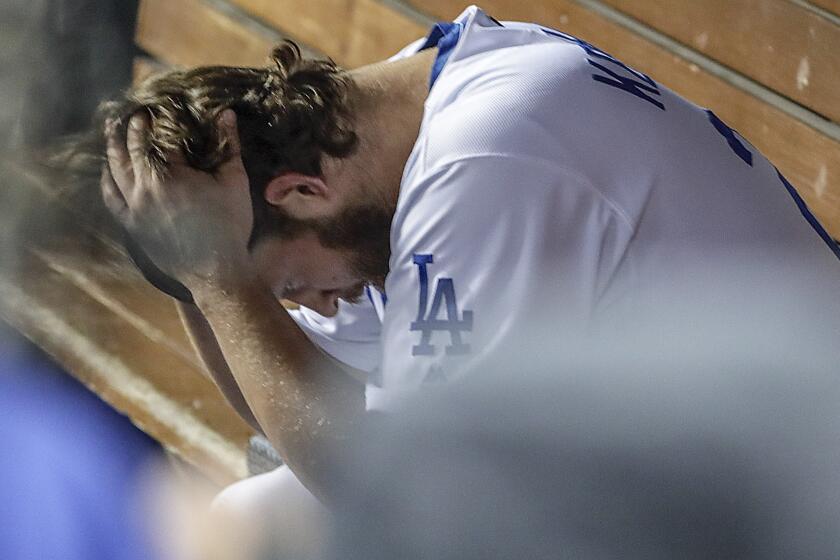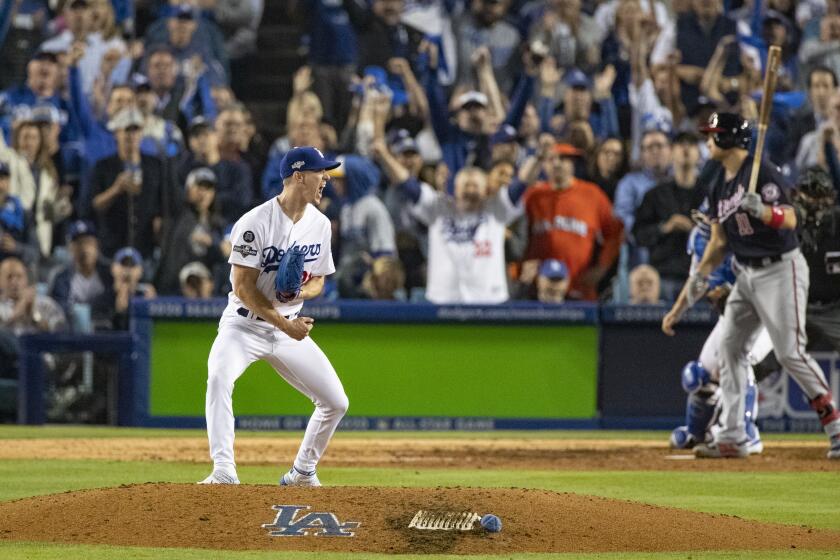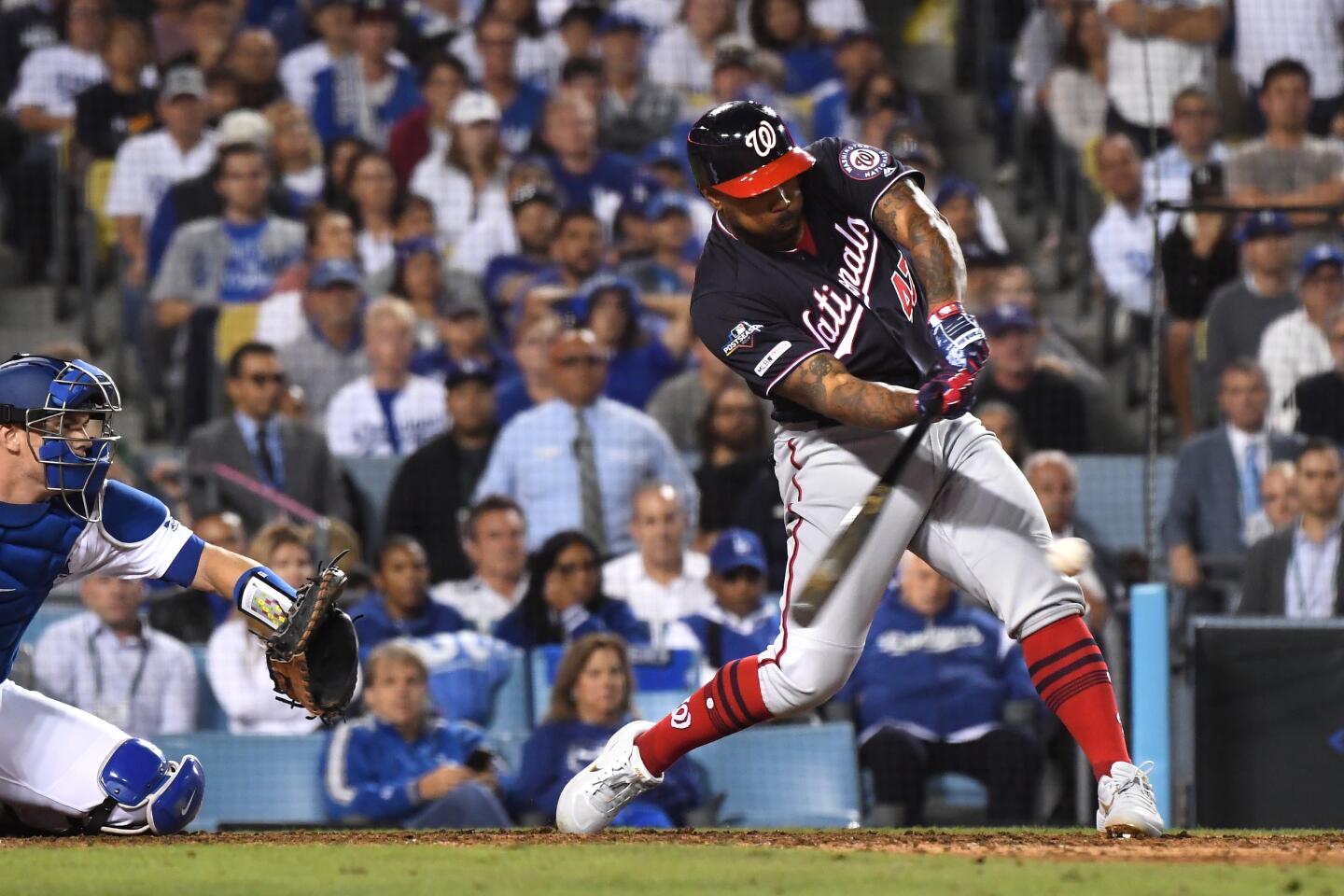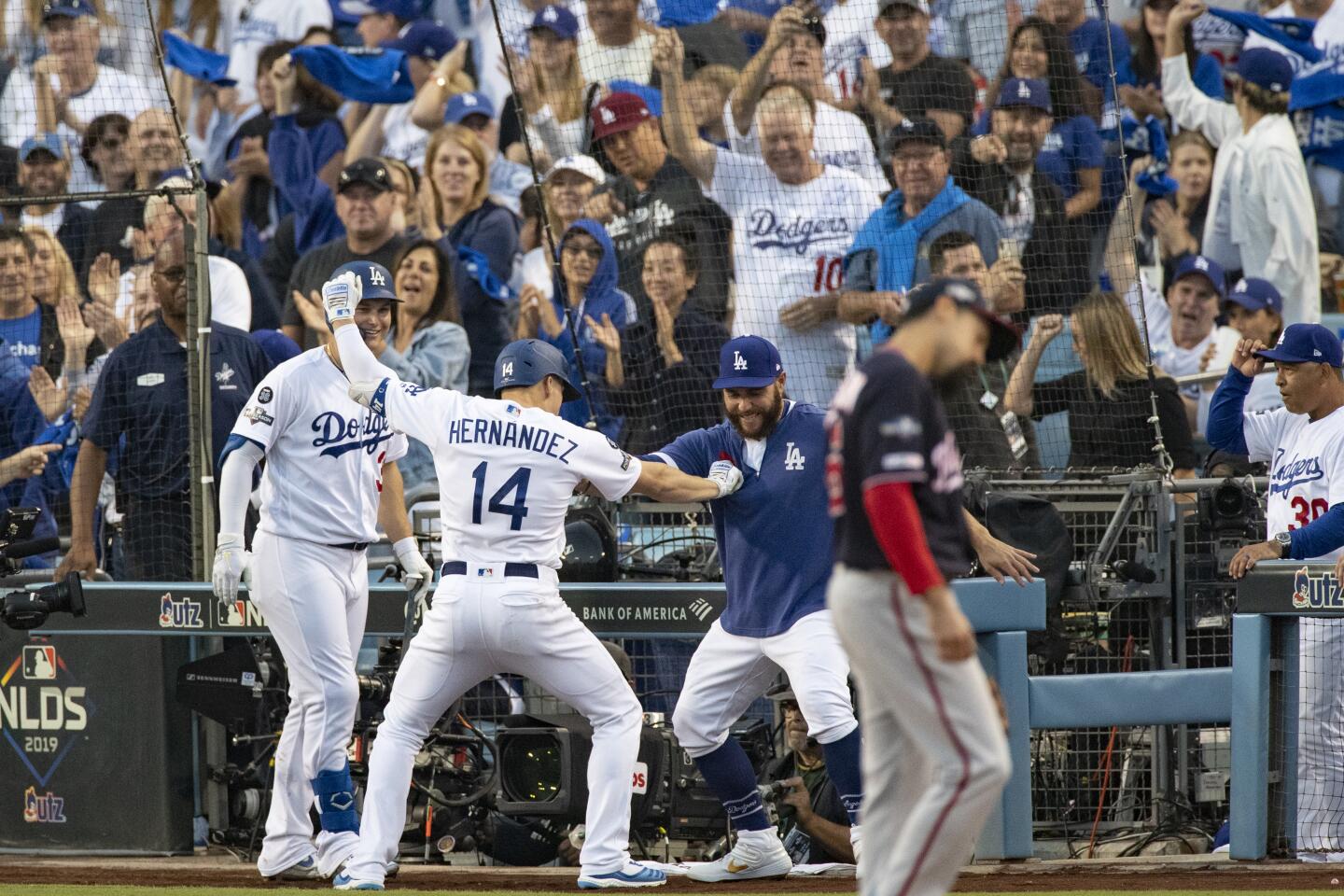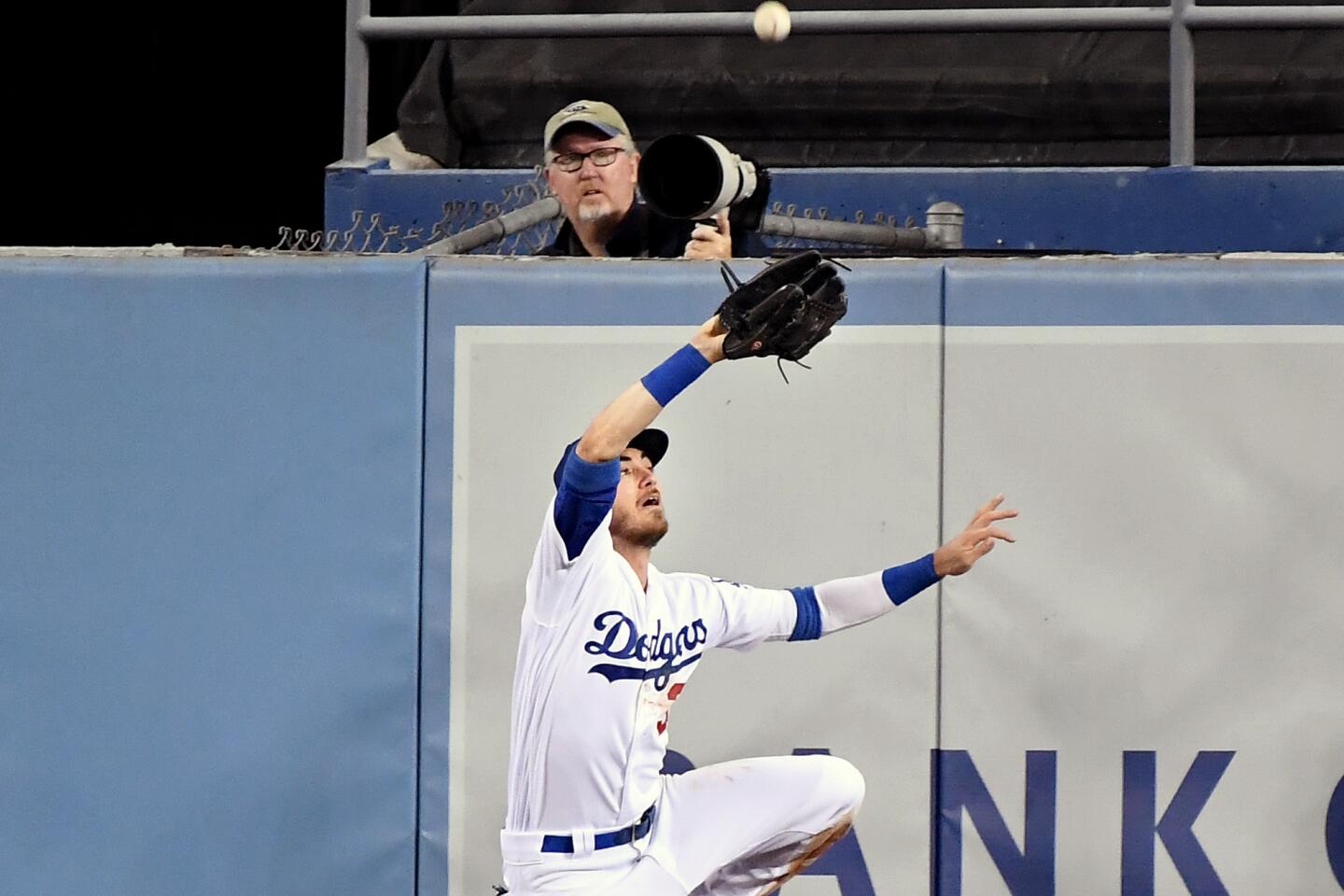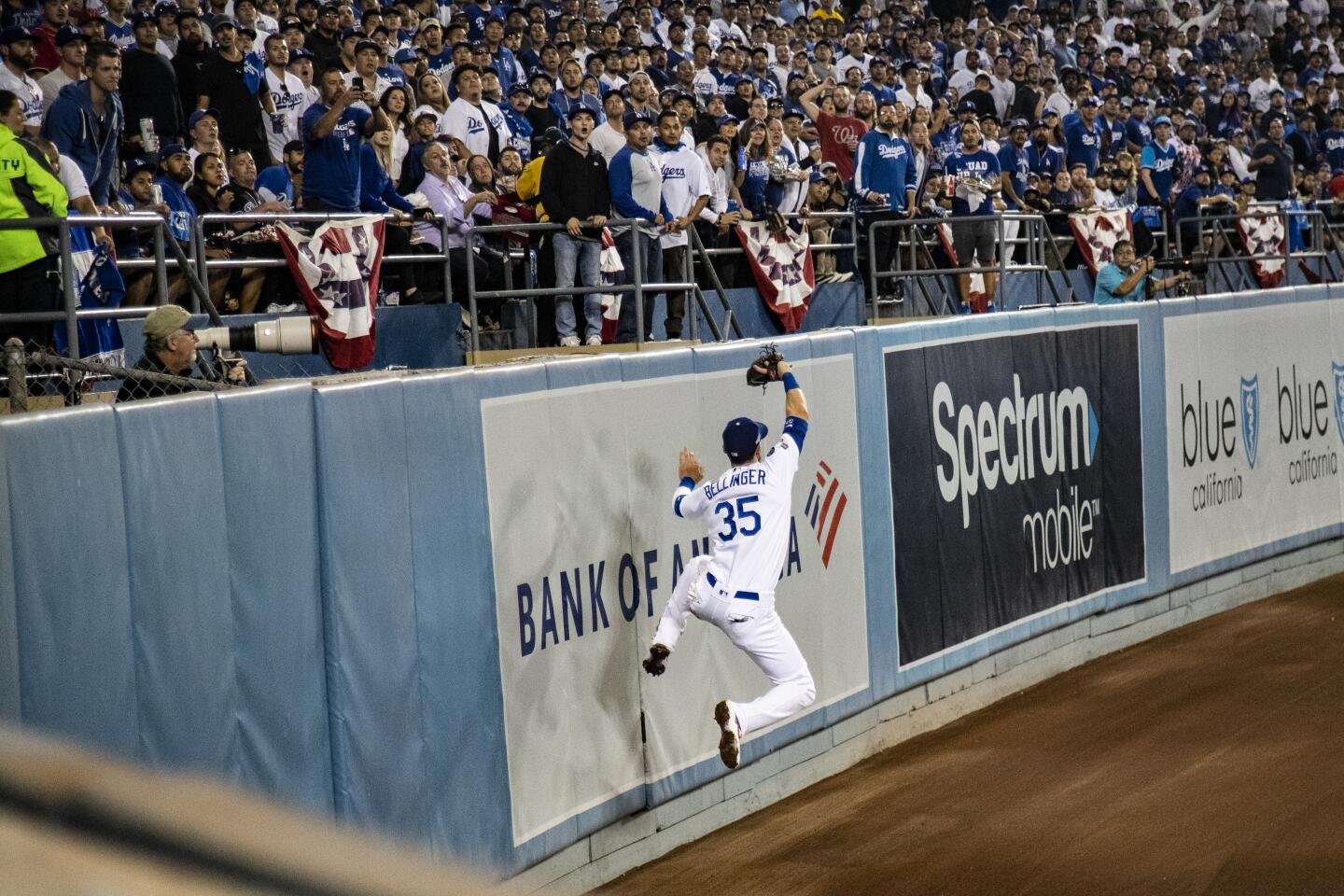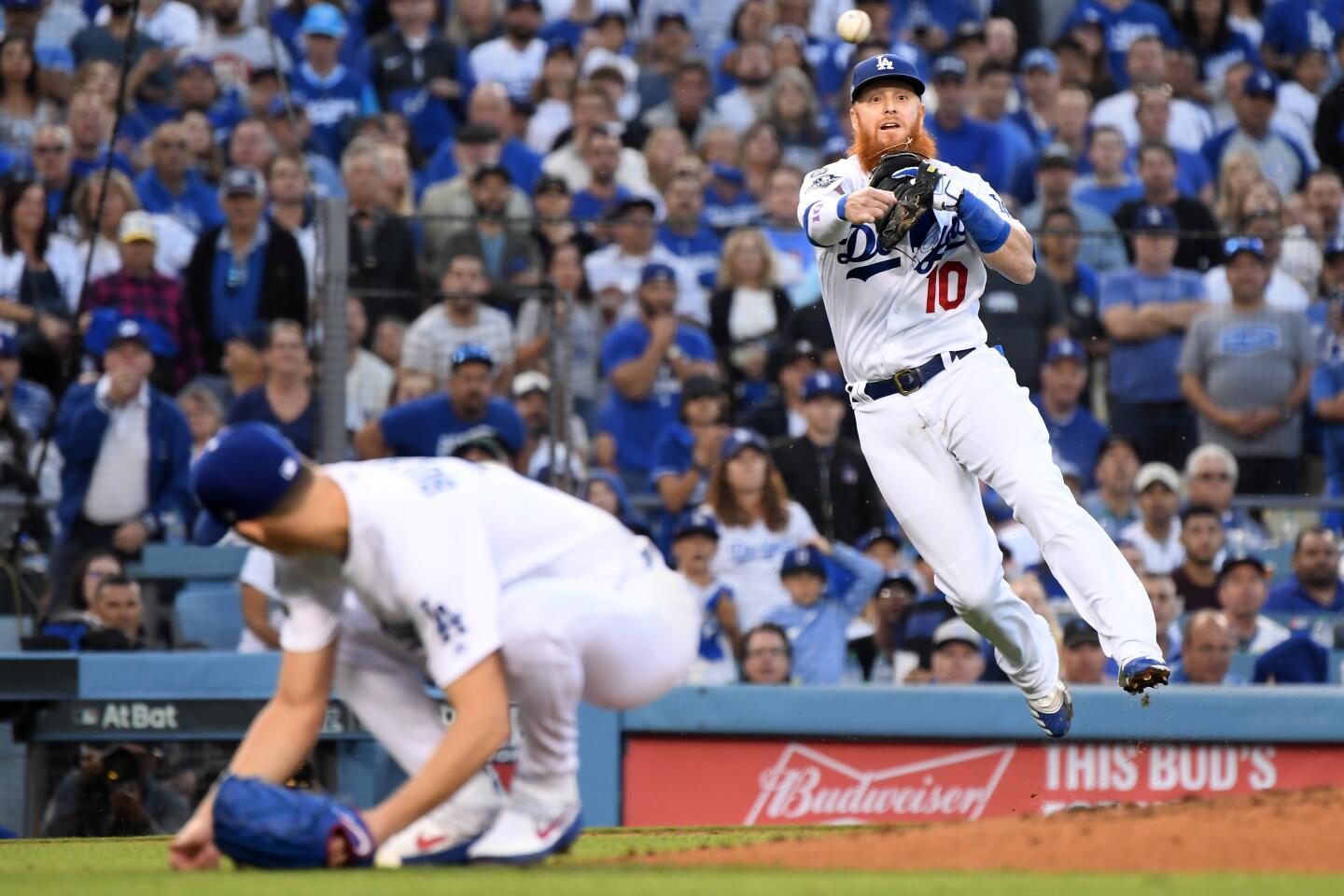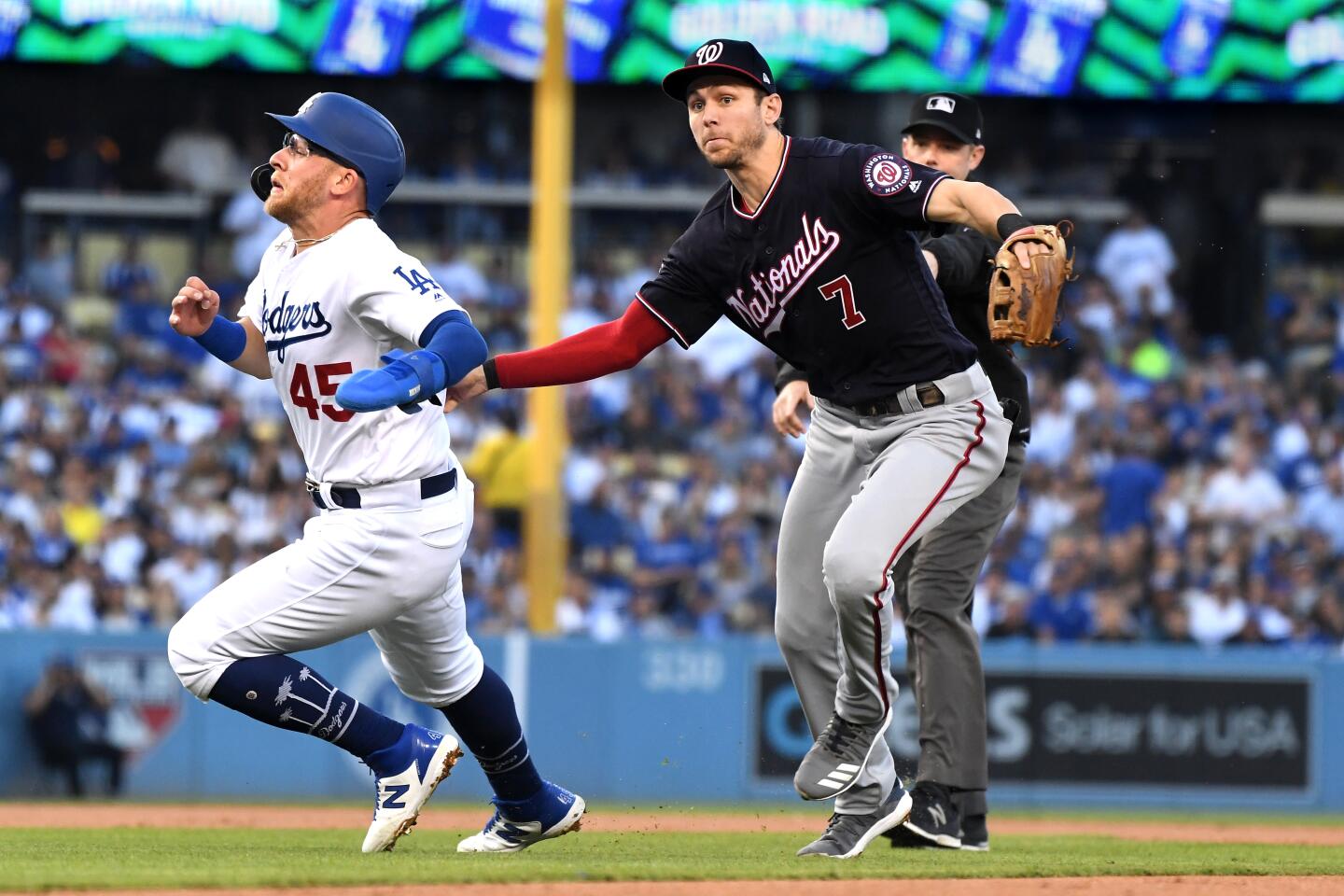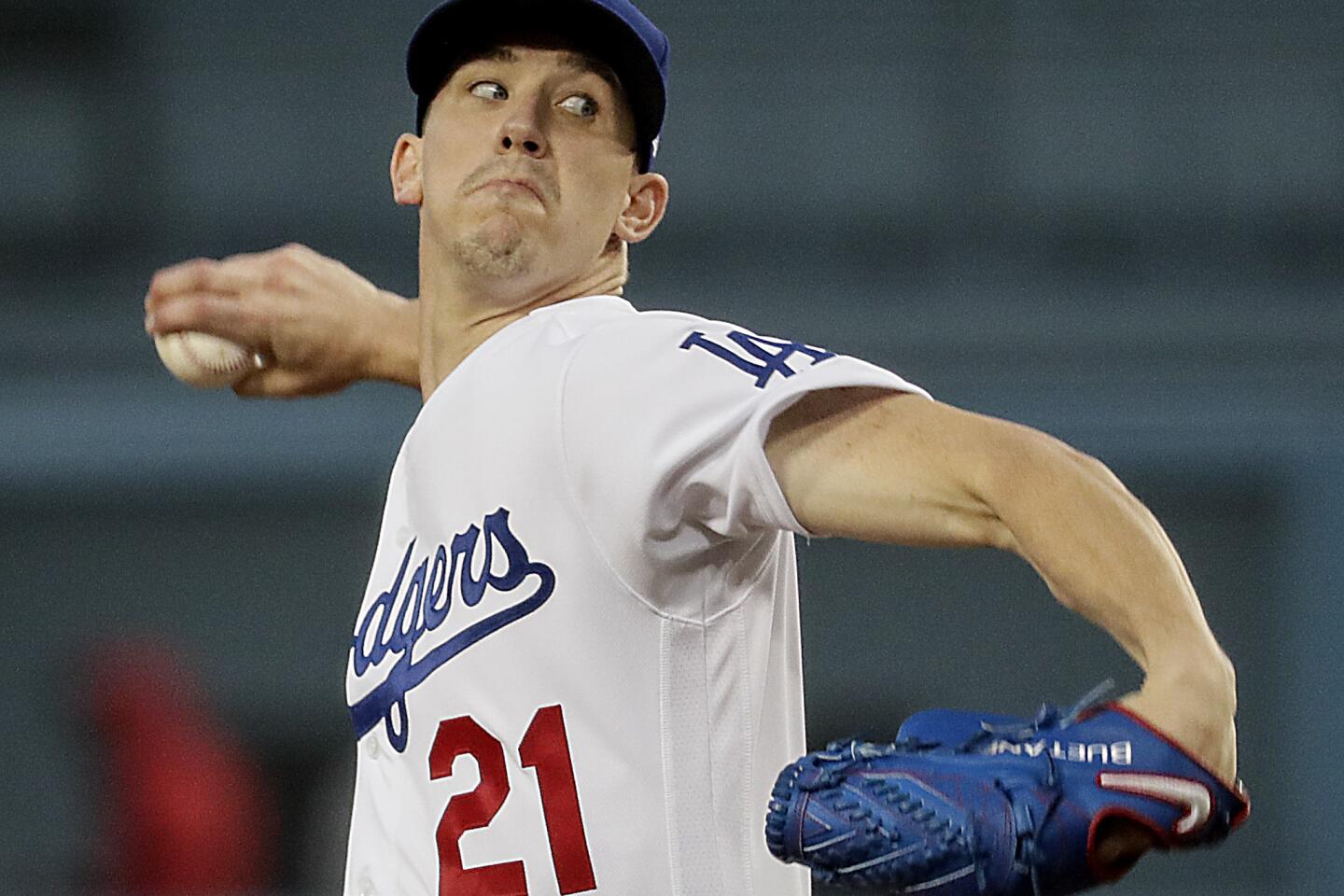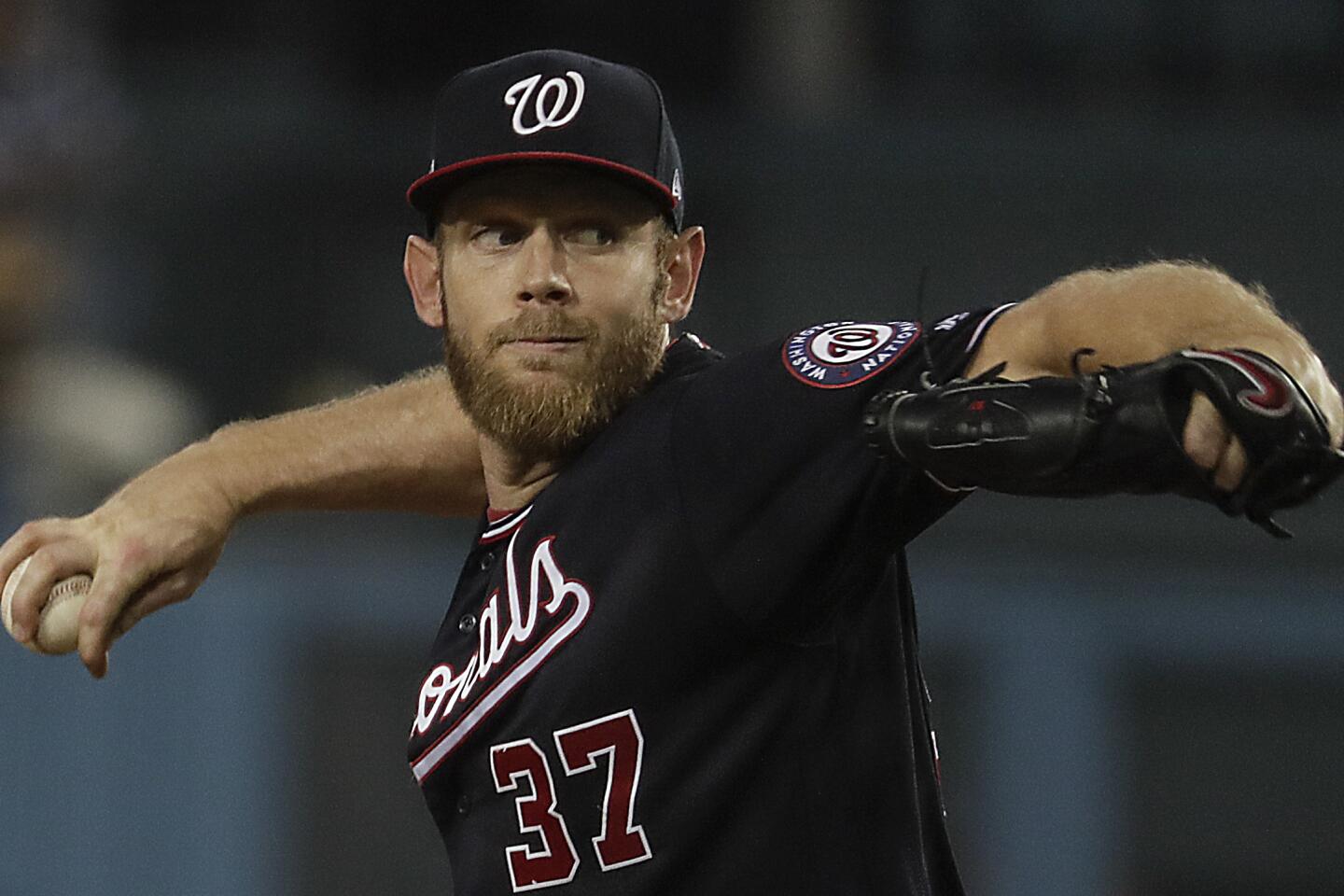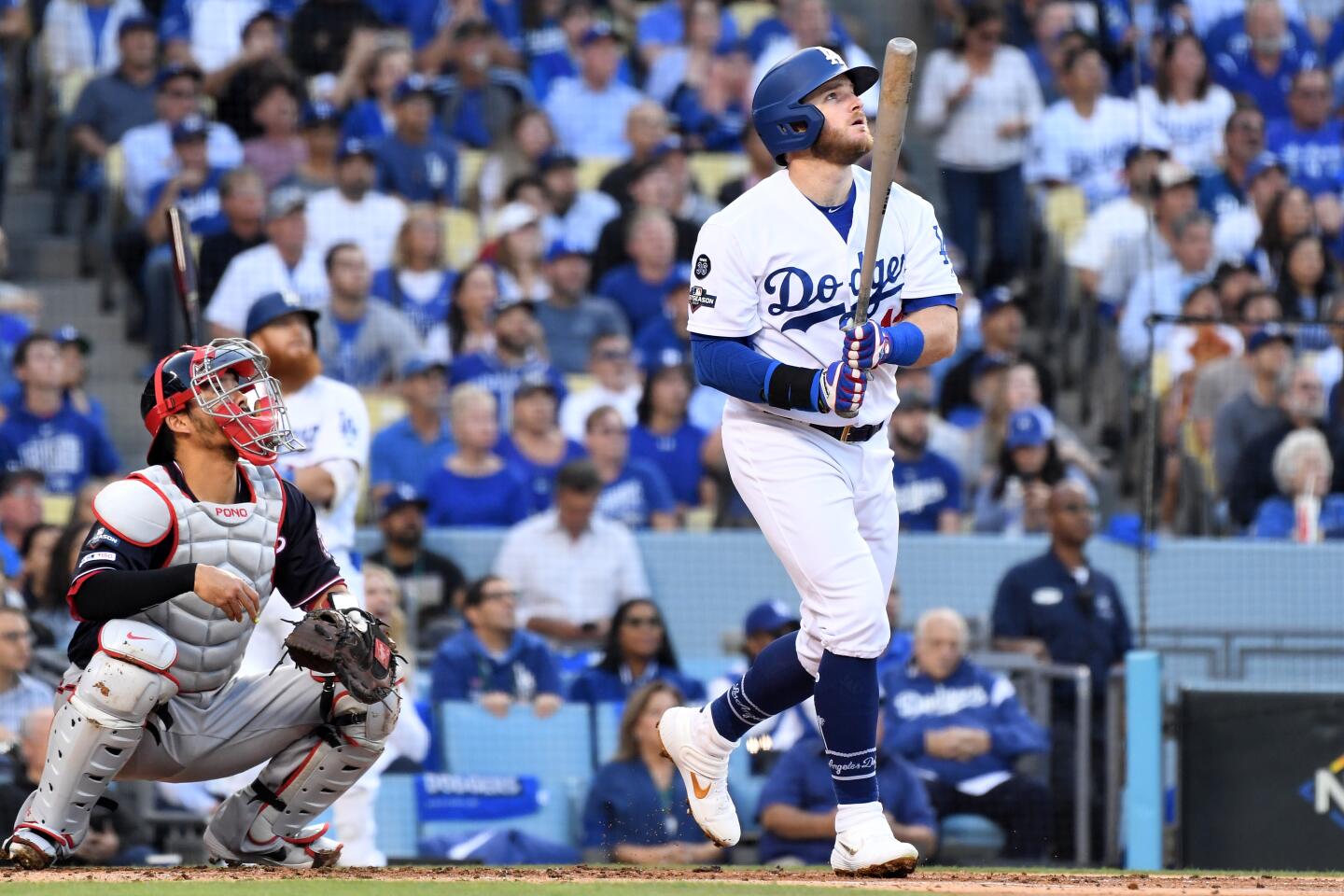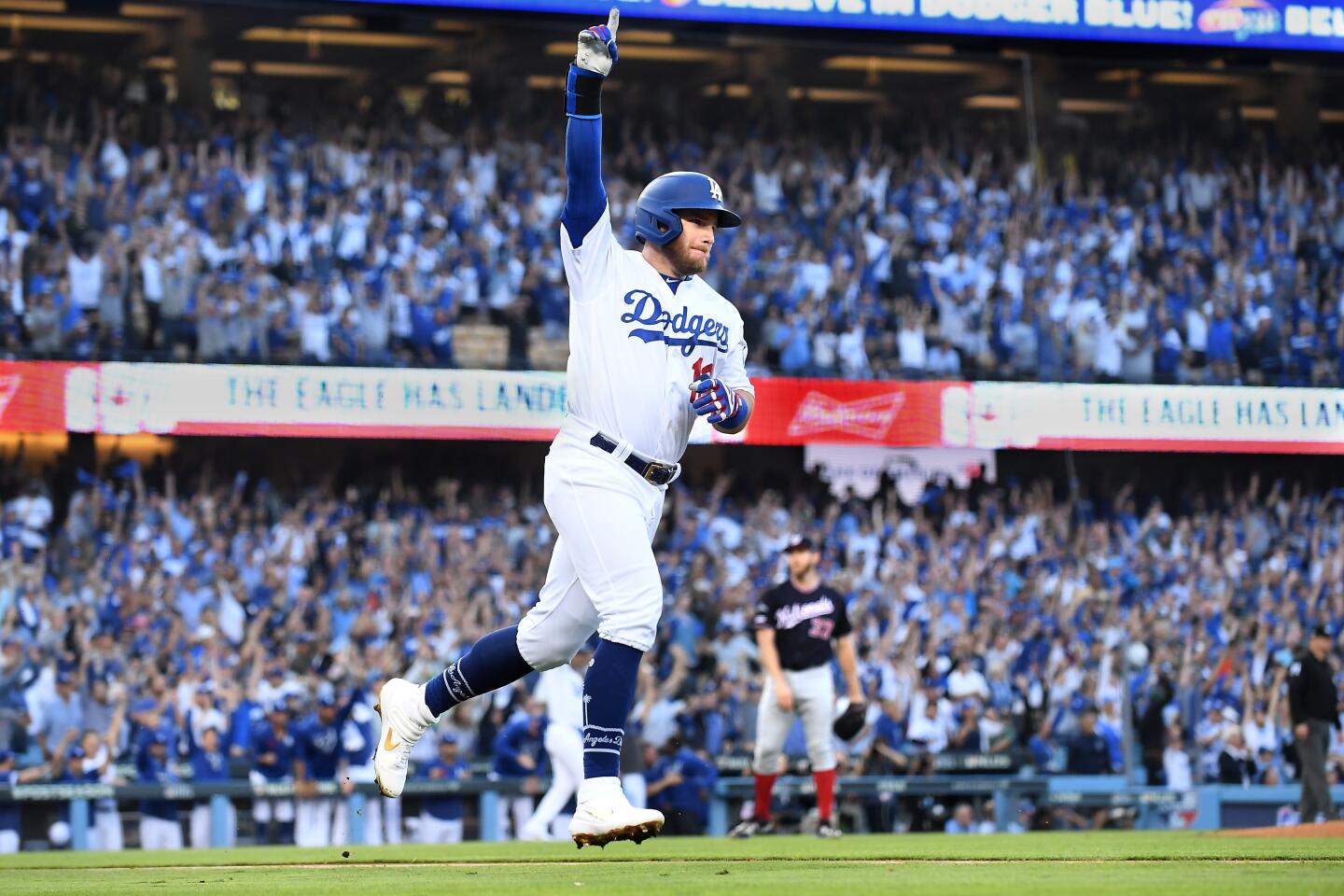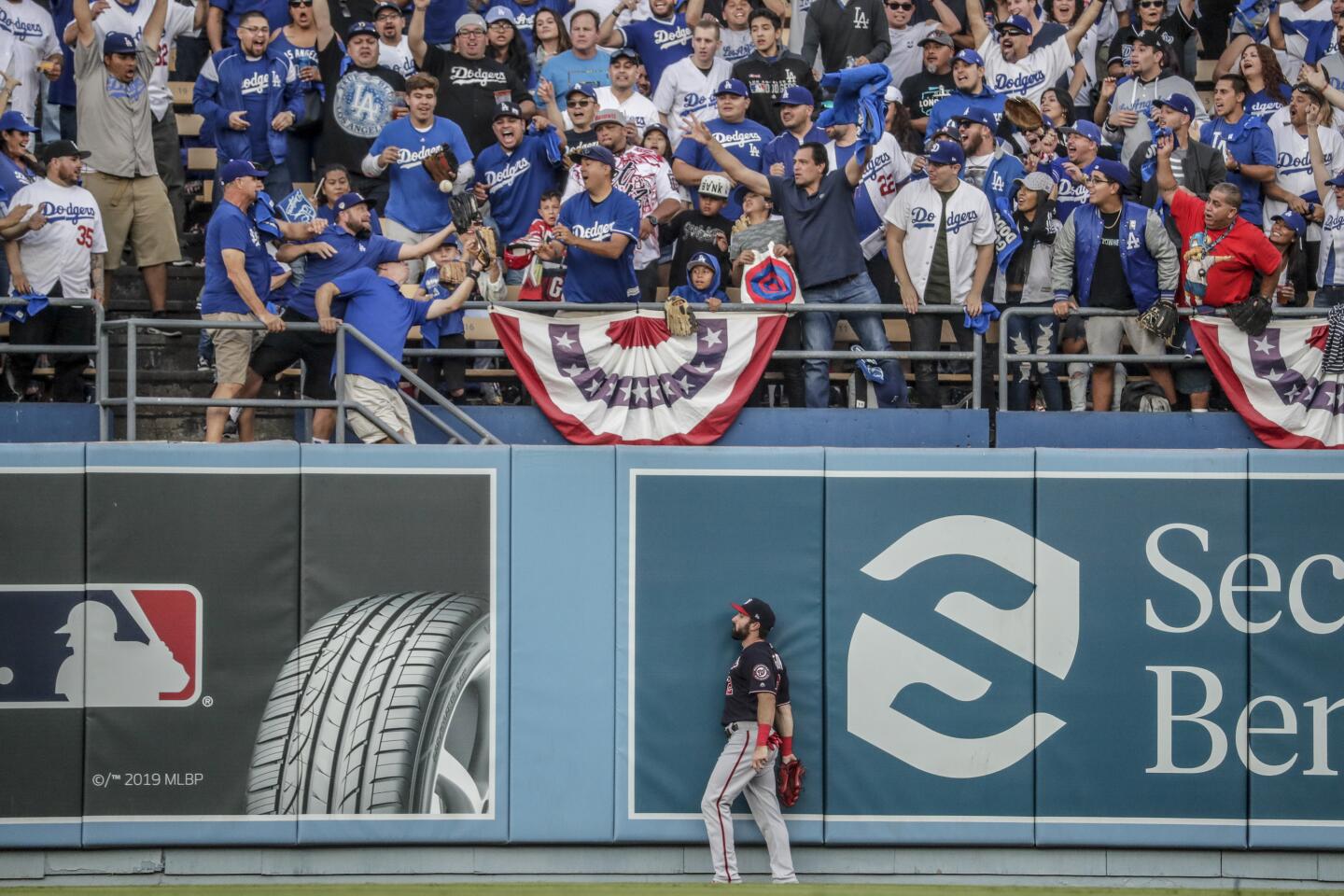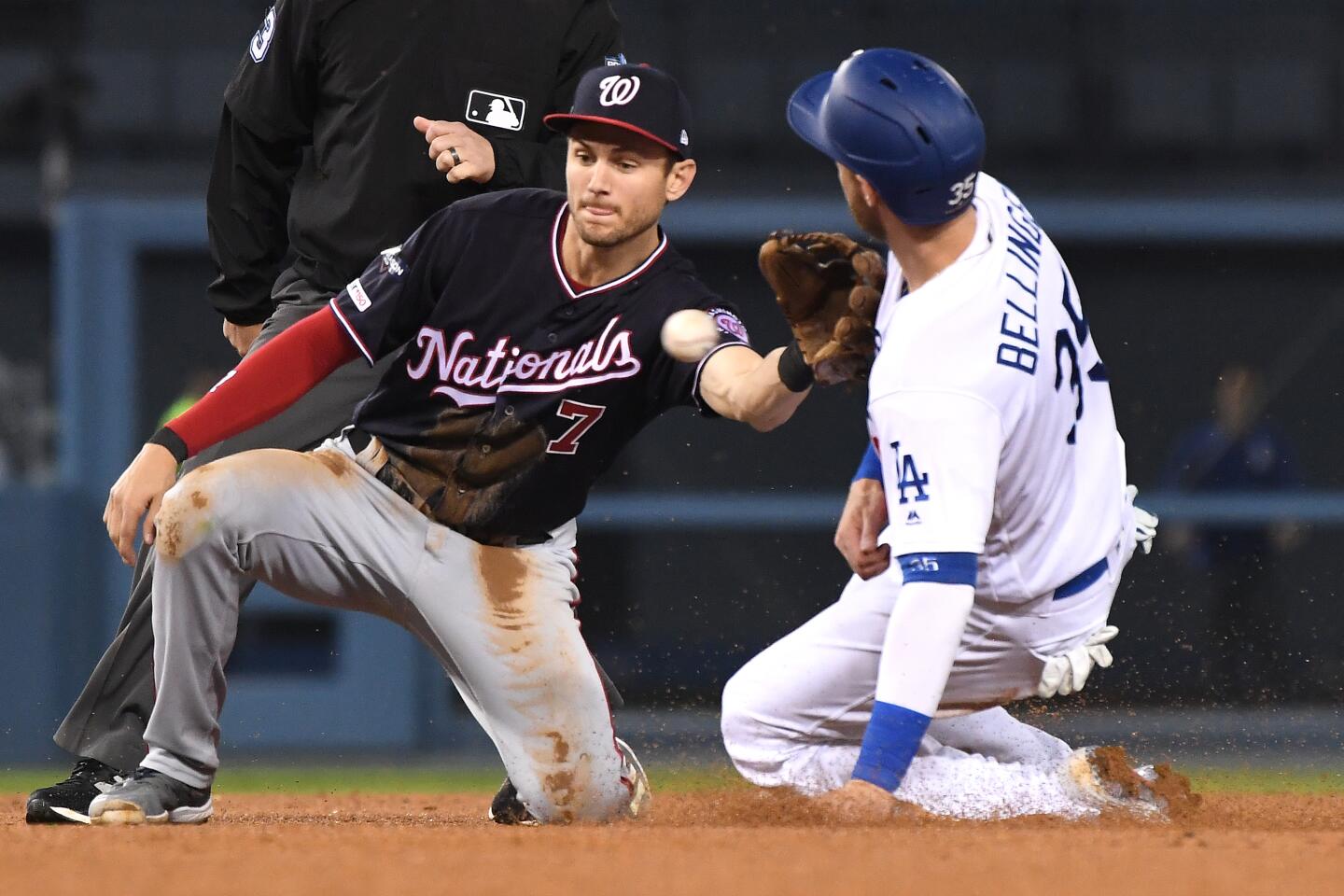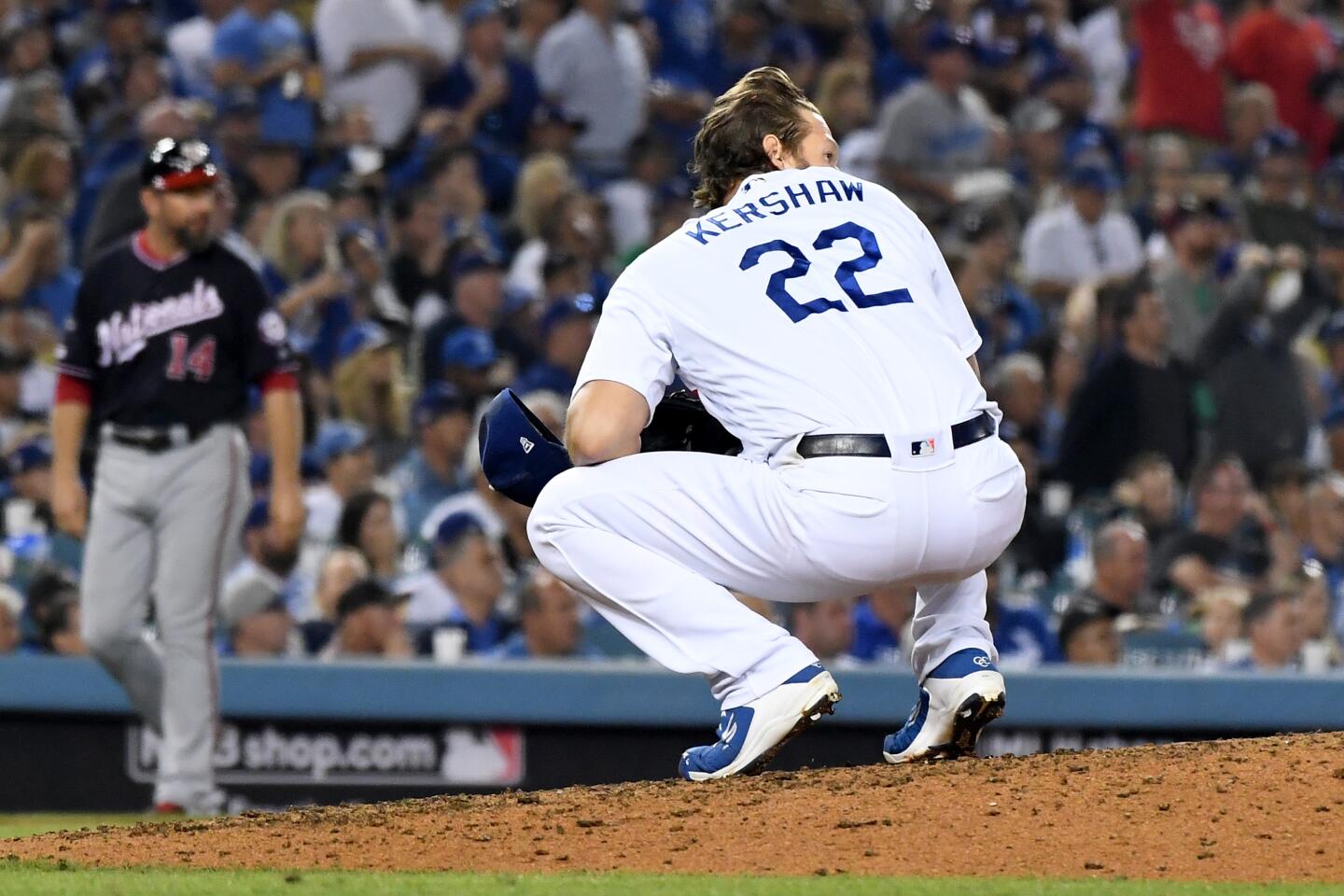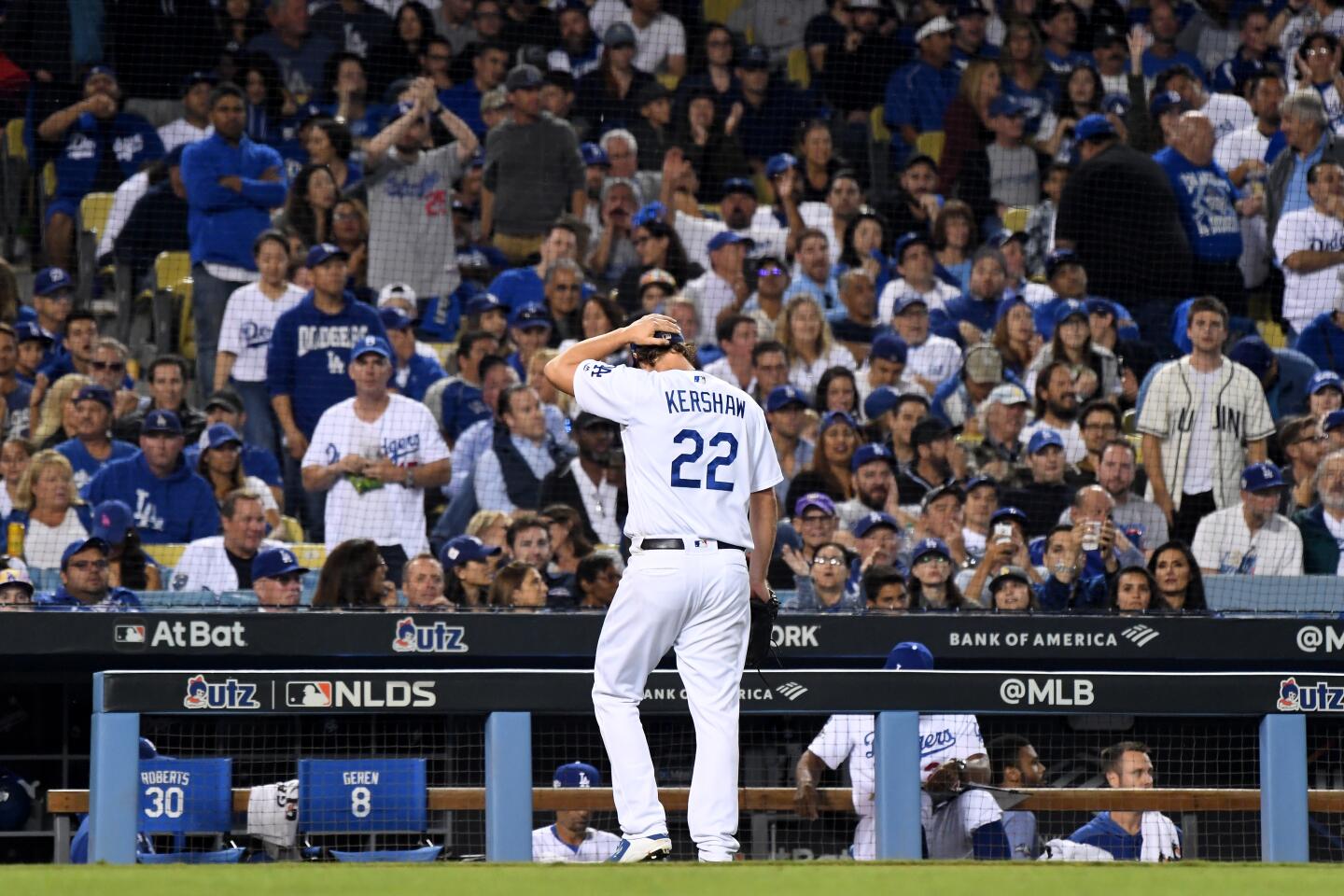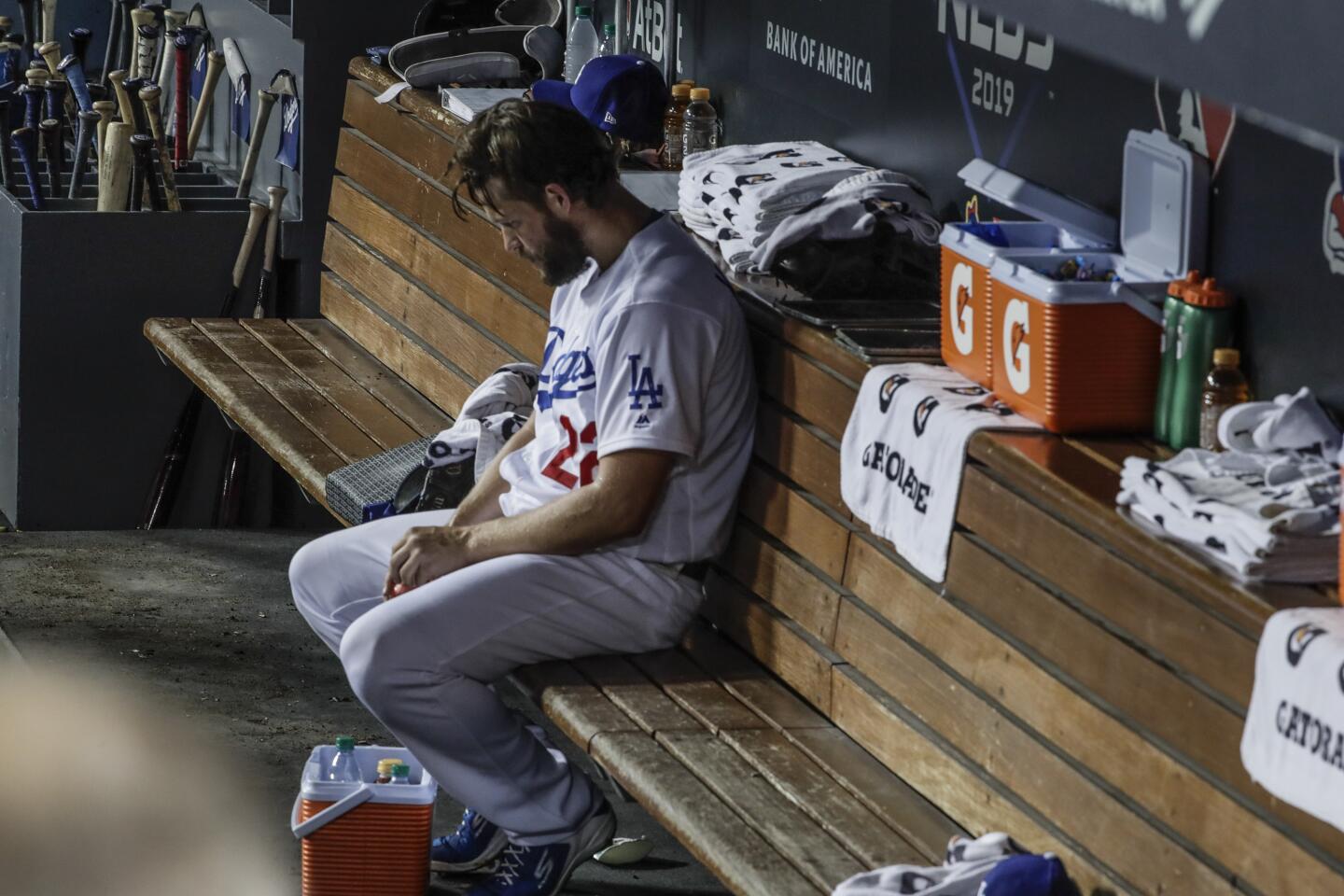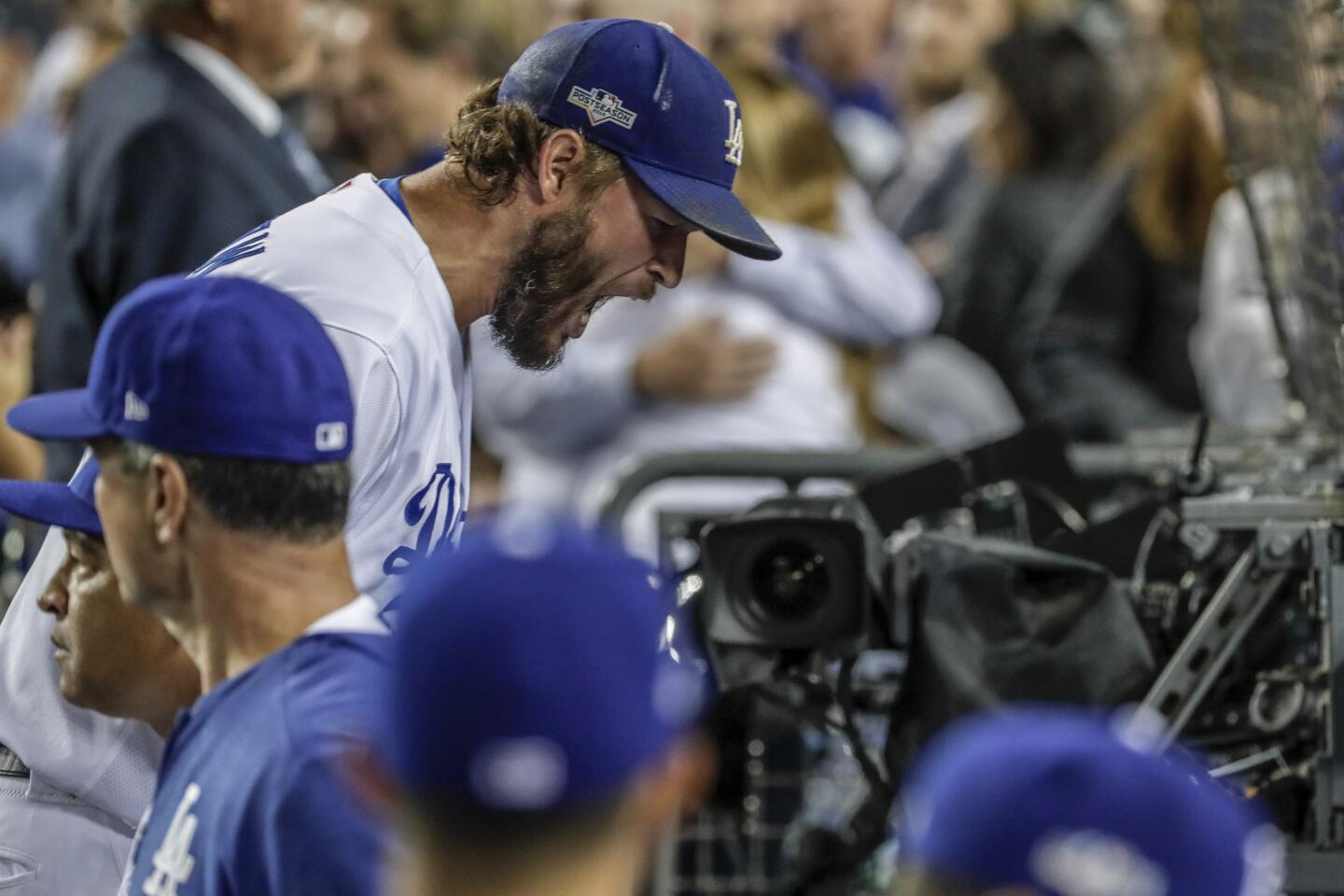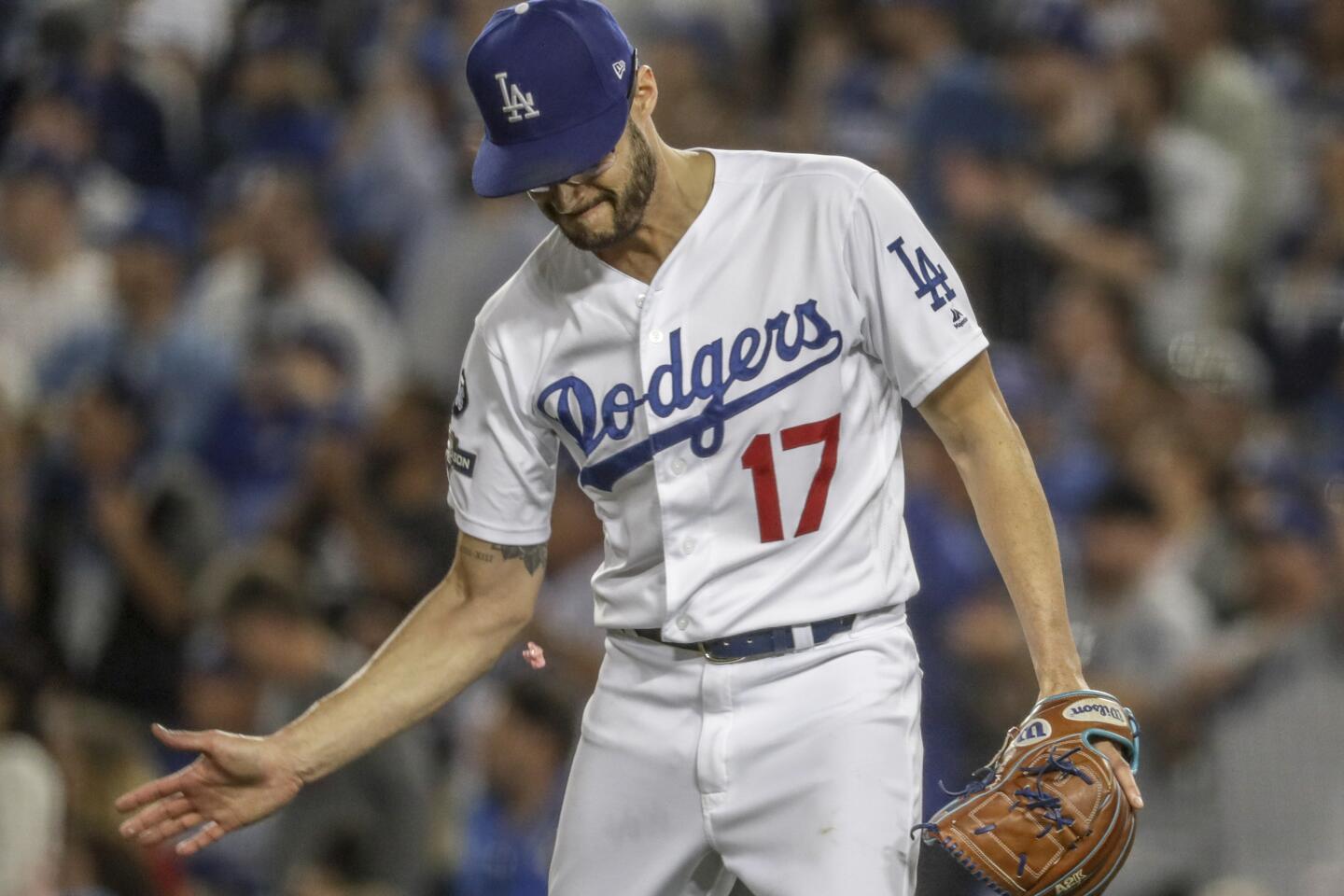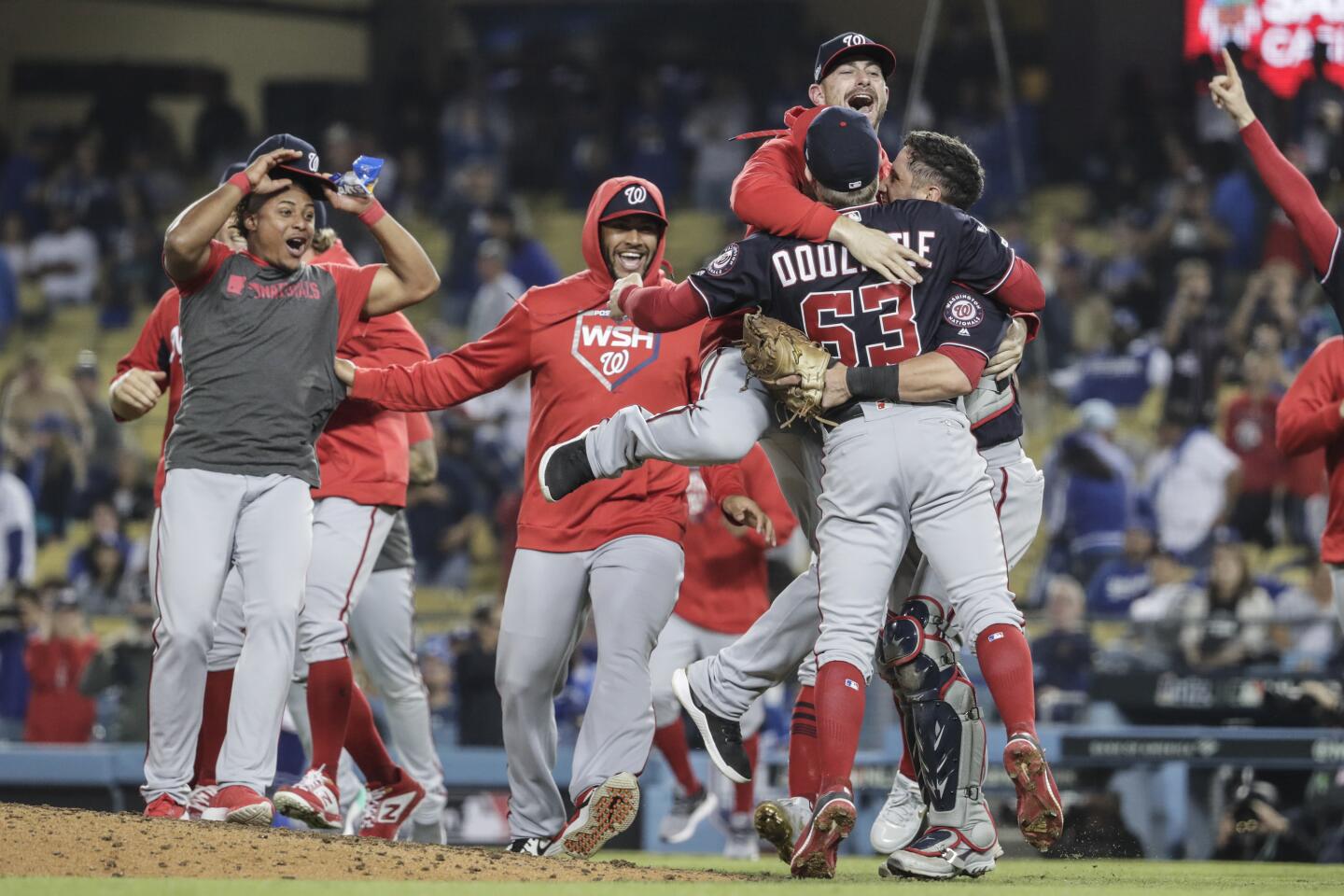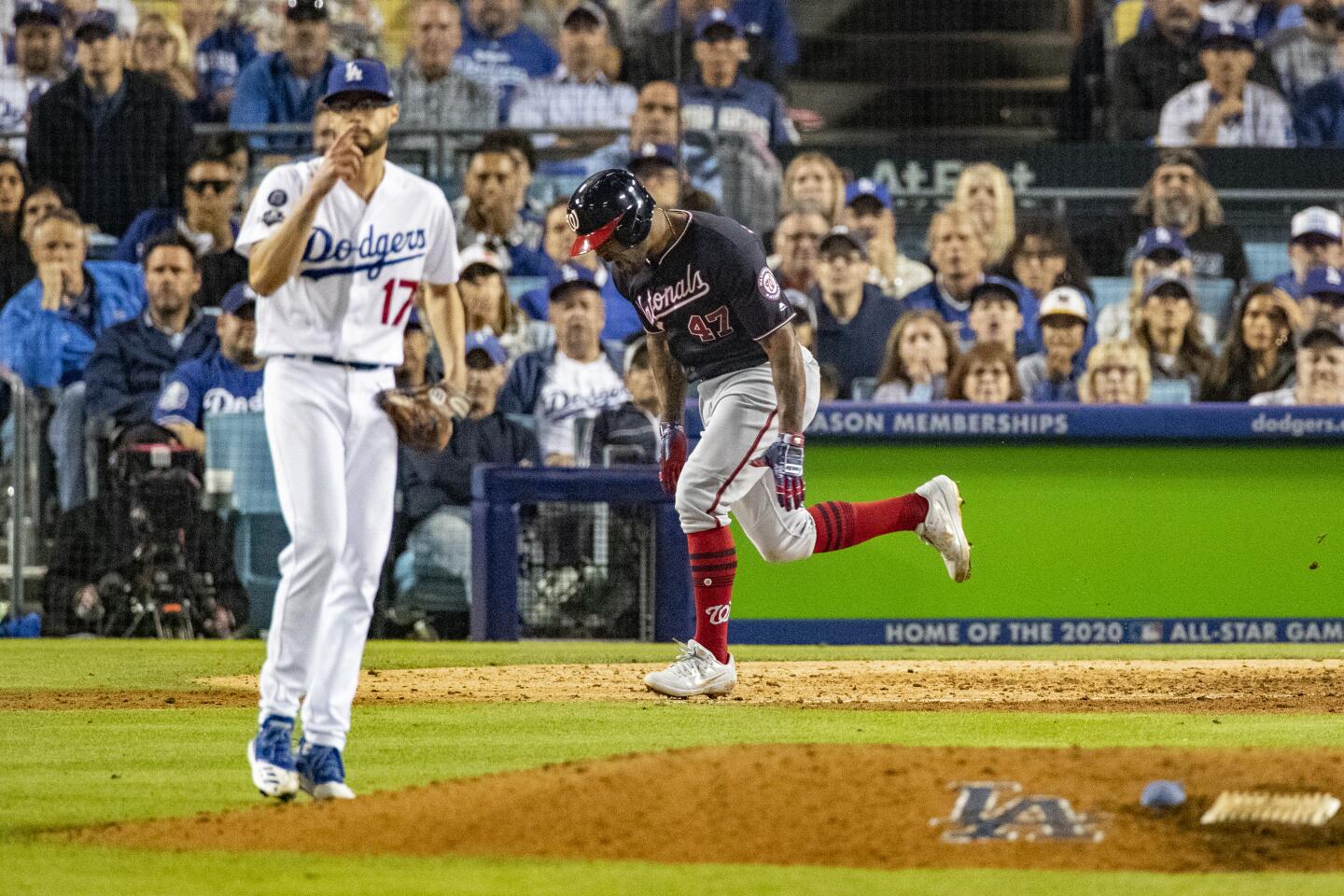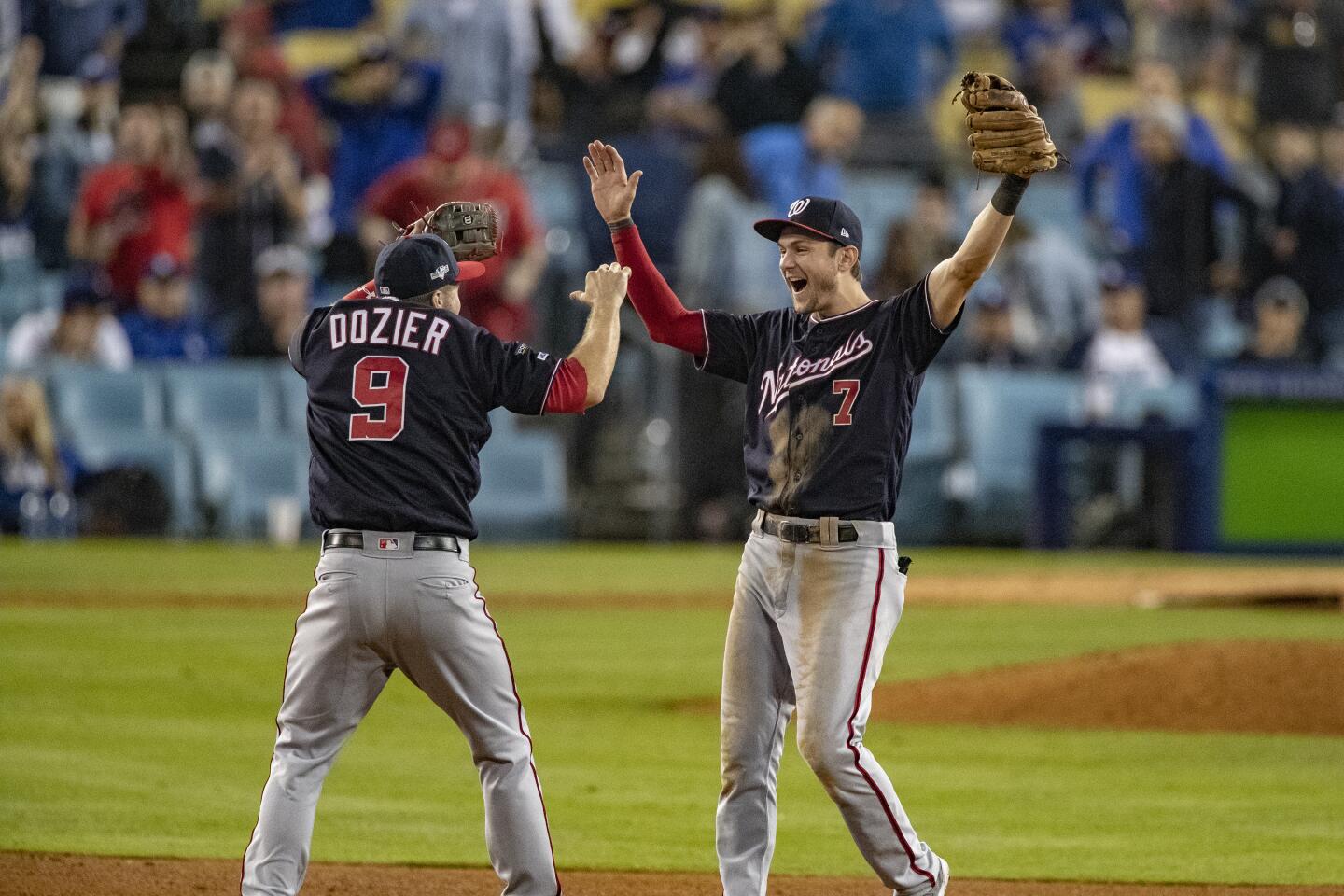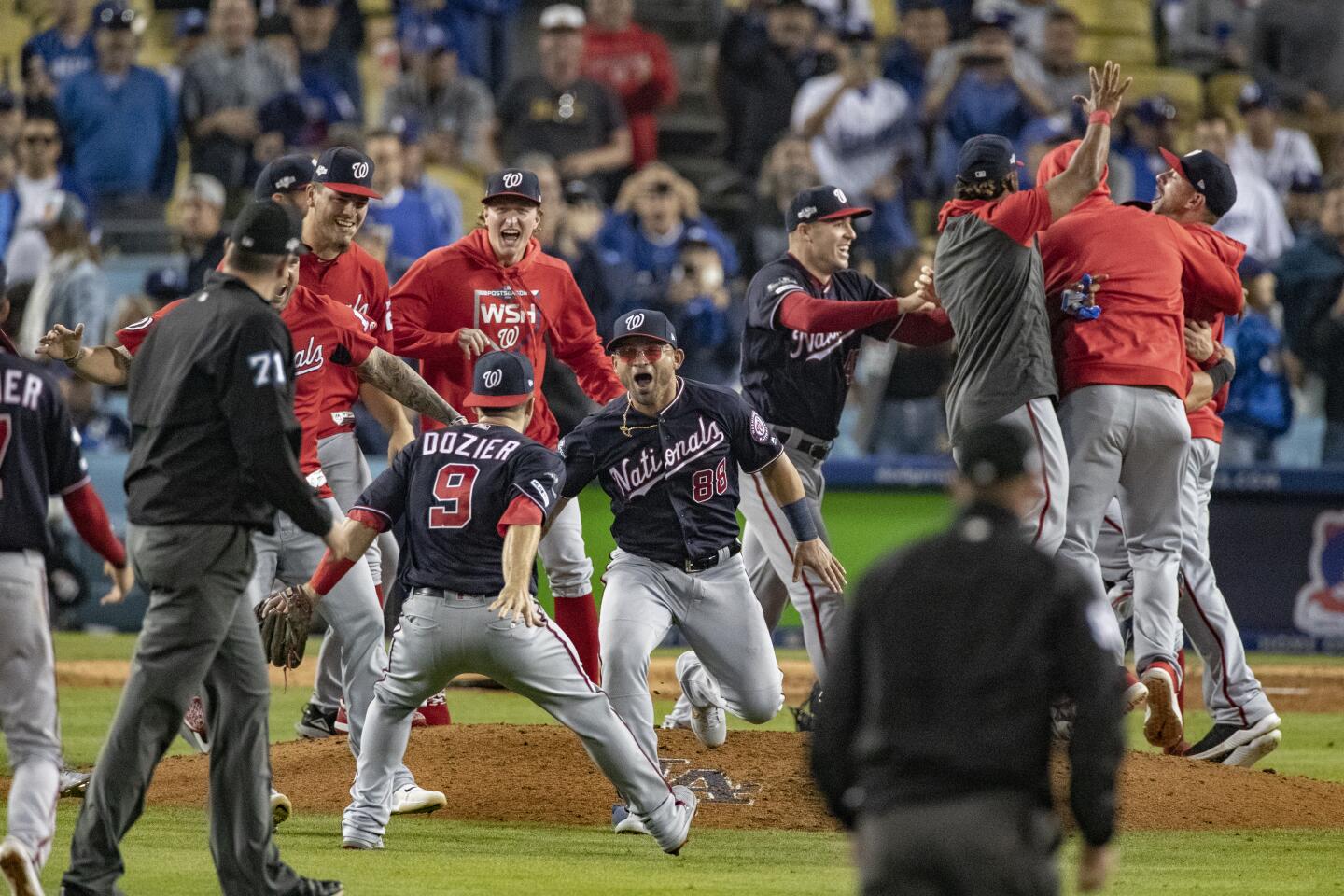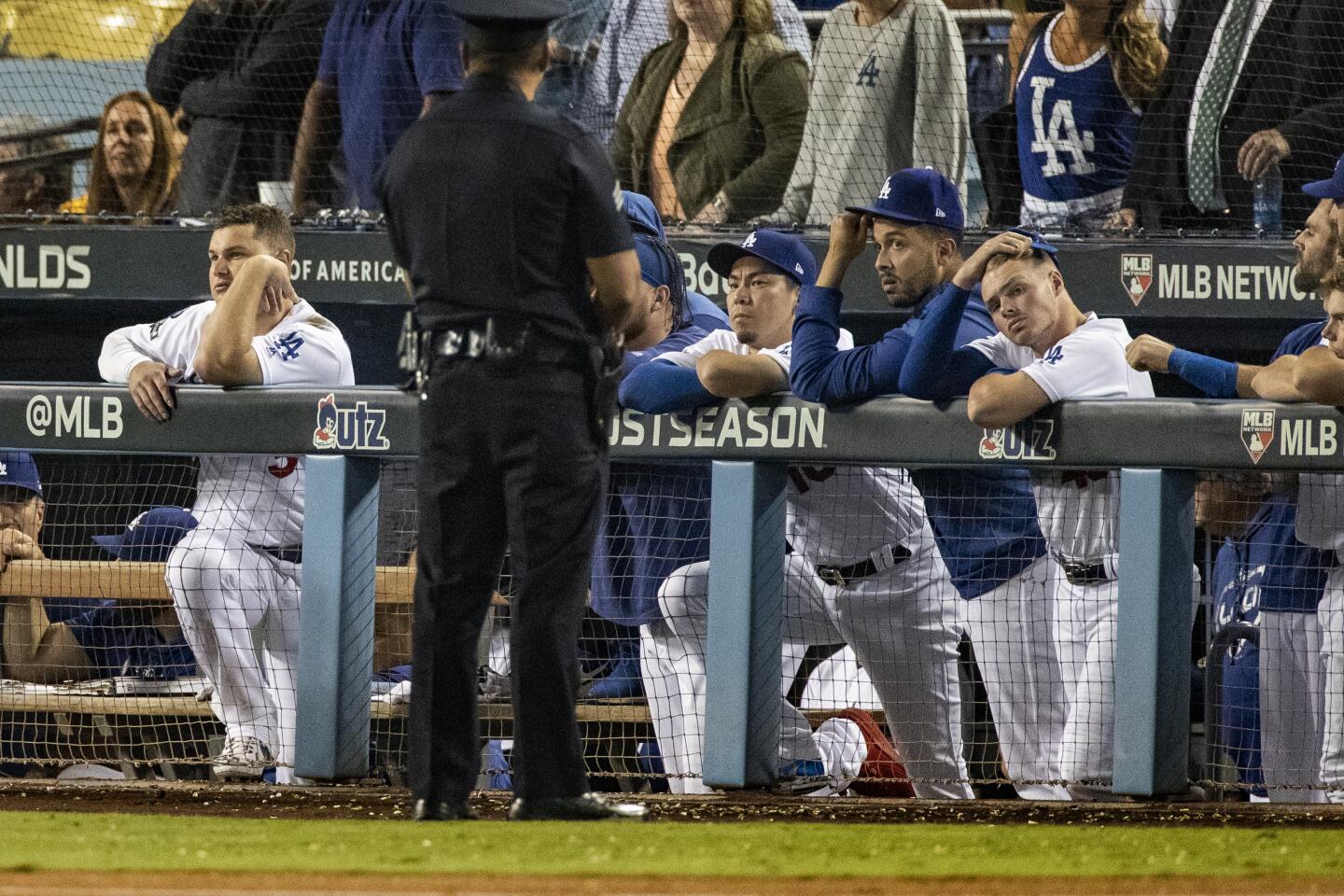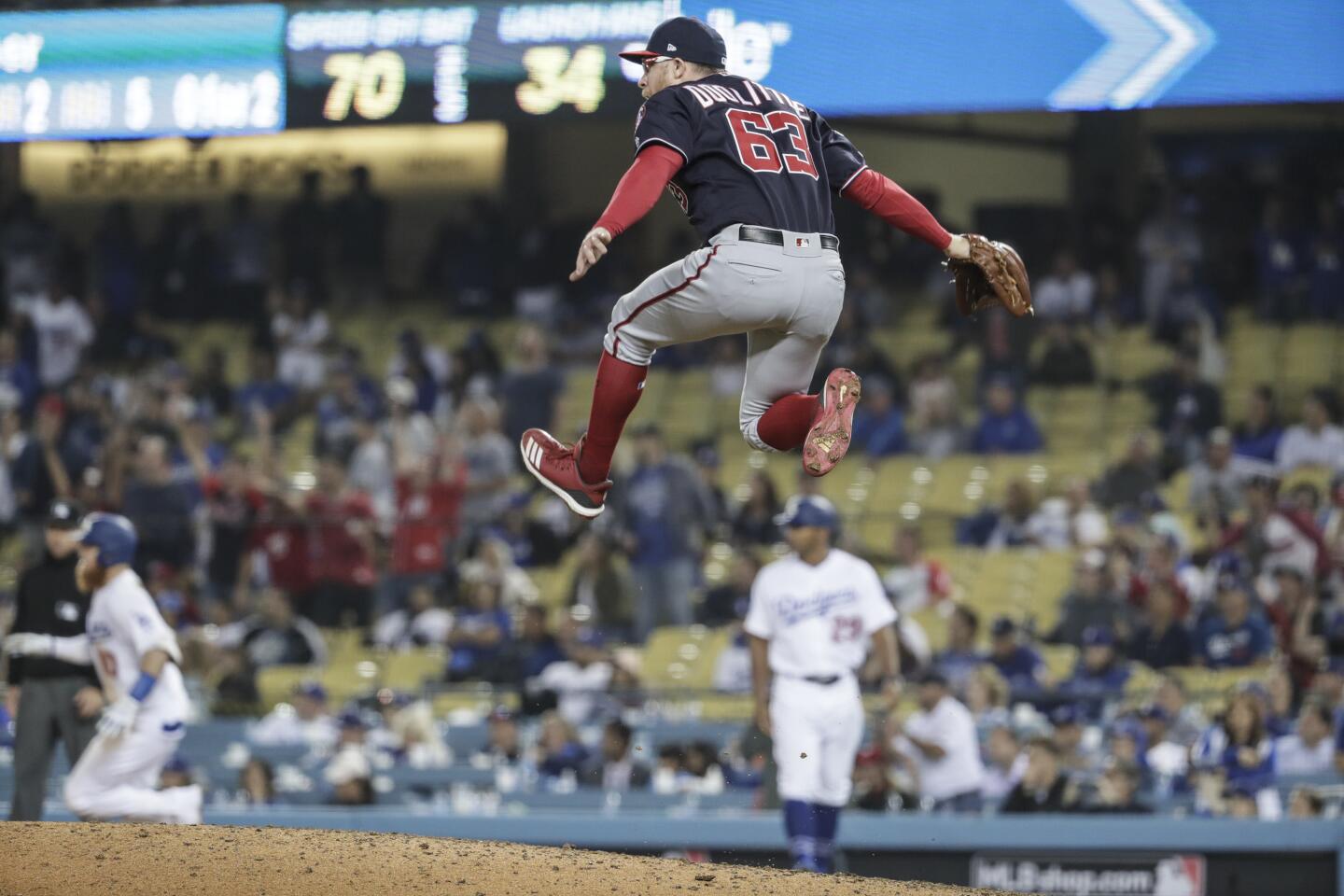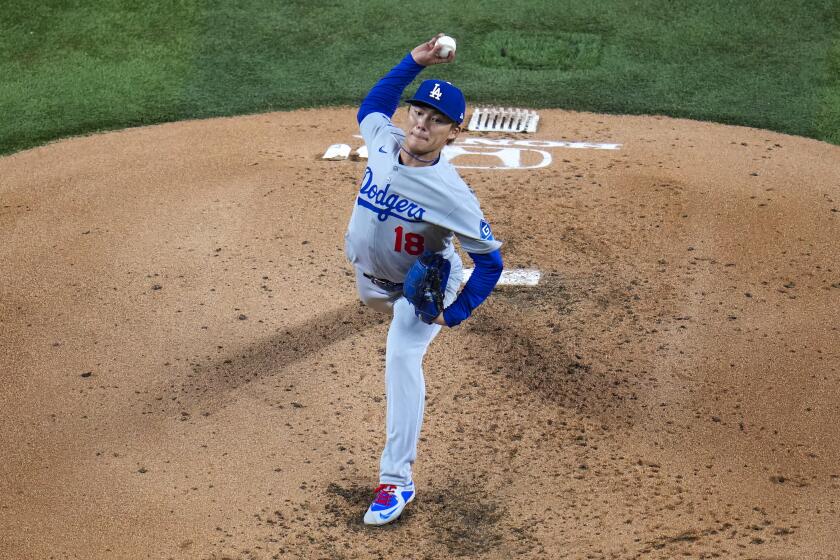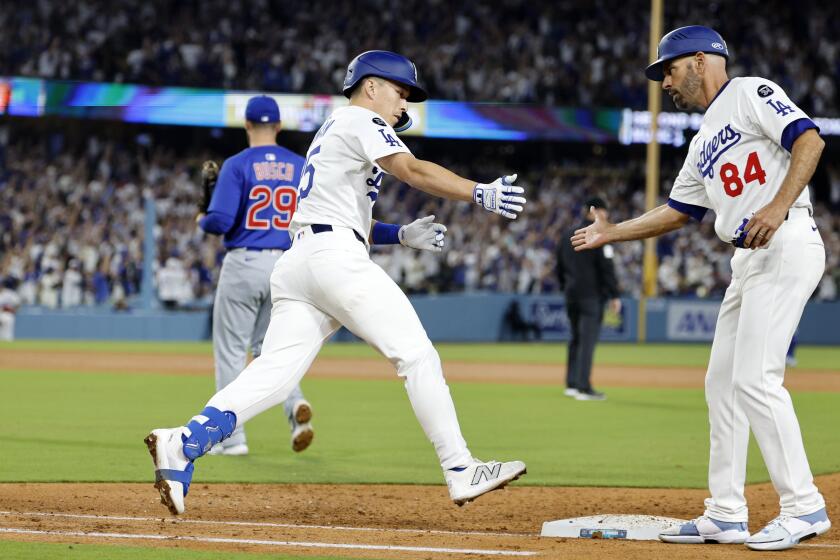Dave Roberts’ baffling NLDS Game 5 bullpen decisions raise questions
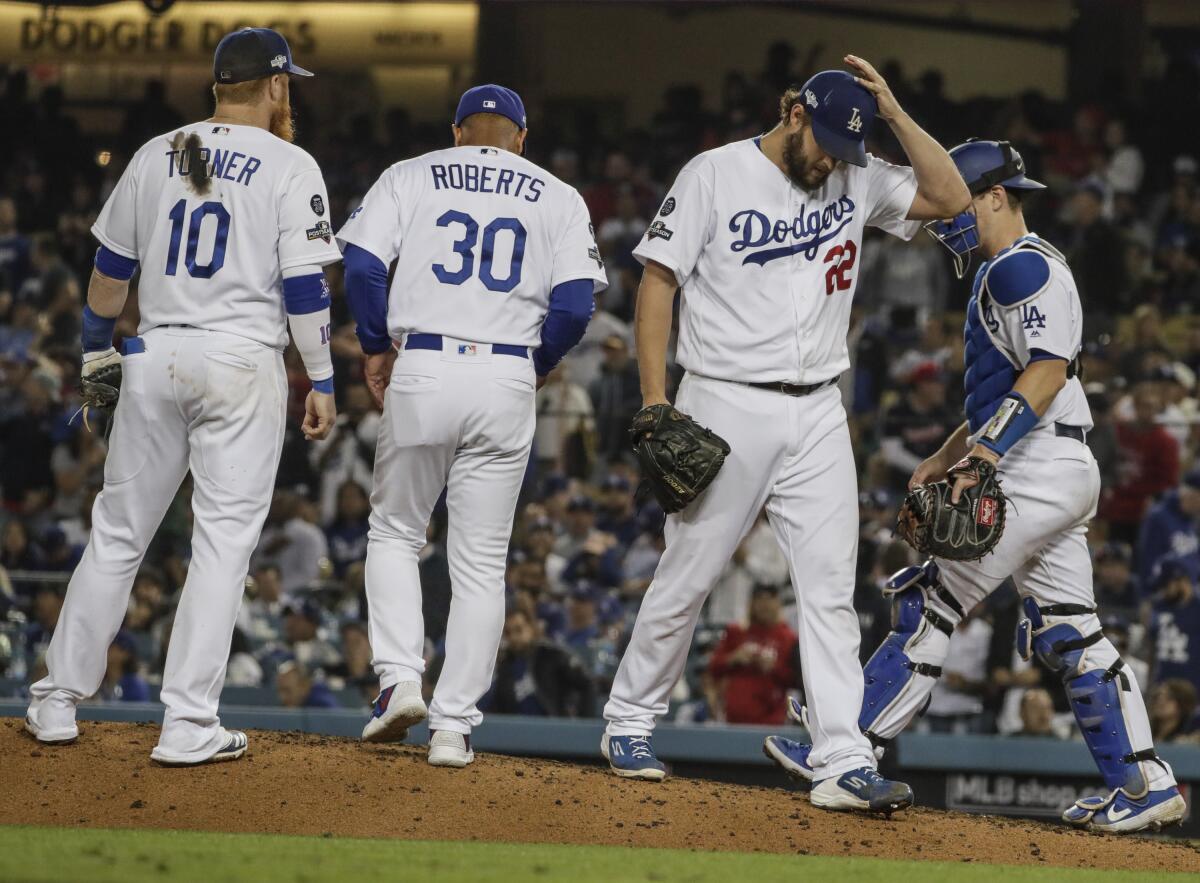
- Share via
After the carnage, after his decisions blew up in his face, after the Dodgers’ season came to a stupefyingly abrupt conclusion in a season-ending loss to the Washington Nationals at Dodger Stadium on Wednesday, Dave Roberts maintained he understood the cresting surge of criticism.
“If the blame falls on me, I’ve got no problem with it,” the Dodgers manager said following the 7-3, 10-inning defeat in Game 5 of the National League Division Series.
“I feel that my job is to put guys in the best position to have success, and if it doesn’t work out, there’s always going to be second-guessing, and I got no problem wearing the brunt of that. That’s OK.”
Roberts has heard second-guessing in October before. Just last year, President Trump took to Twitter to blame him for losing Game 4 of the World Series when he removed starting pitcher Rich Hill. But this wave is unlike any Roberts has ever encountered in his four seasons as Dodgers manager.
It appeared he was following a script Wednesday: Have Walker Buehler pitch seven innings before giving the ball to Clayton Kershaw to at least log the eighth. He tried pushing Buehler through the seventh — the right-hander set a career high with 117 pitches — before Kershaw was placed in a two-out jam. Kershaw escaped, but the plan then deteriorated. Hindsight, always 20-20, crystallizes several questions.
Why send Kershaw, who isn’t the dominant pitcher of yesteryear, back to the mound in the eighth inning to face Anthony Rendon and Juan Soto, the Nationals’ best hitters?
Why go to Joe Kelly for a second inning in the 10th when the volatile right-hander was rarely deployed for more than three outs during the regular season? Why intentionally walk Soto to load the bases in the 10th when left-handed specialist Adam Kolarek, who had retired Soto the three times he faced him in the series, was available? And, lastly, after Kelly had loaded the bases with none out, why allow him to face Howie Kendrick with the season on the line?
It wasn’t supposed to end like this, but it did.
The decisions culminated in the Dodgers’ most frustrating playoff exit to date. Kershaw gave up home runs to Rendon and Soto on back-to-back pitches to squander a two-run lead. Kelly surrendered a go-ahead grand slam to Kendrick. Boos rained and the season ended.
“It’s a terrible feeling,” Kershaw said. “There’s no excuses.”
But the genesis of Roberts’ debatable bullpen handling could be traced to Monday’s Game 4 — the Dodgers’ first chance to close out the Nationals and advance to their fourth consecutive National League Championship Series.
With the score tied 1-1 in the fifth inning, Roberts elected to pinch-hit for Kenta Maeda, the Dodgers’ best reliever in the series. Maeda had entered with the bases loaded and two outs in the third, and escaped, before retiring the side in order in the fourth. The right-hander’s pitch count was at 20 after throwing five pitches in two-thirds of an inning the day before in Game 3. After the game, Roberts said the usage for Maeda, a starter during the regular season until September, warranted his removal.
So he inserted Julio Urias to face the top of the Nationals’ lineup despite Urias logging two innings the day before. Urias pitched on back-to-back days only twice during the regular season. The left-hander had never pitched the day after logging multiple innings in a game in his major league career.
And yet Roberts went with Urias. The result was instant trouble. Trea Turner singled. Adam Eaton sacrificed Turner to second. Rendon singled to score Turner and give Washington the lead. Soto popped out for the inning’s second out, but Kendrick singled to put runners at first and third.
“In a spot that, you like [left] versus left and [right] versus right,” Roberts said. “And at that point in time I don’t think he had that command tonight, to be quite honest.”
With Ryan Zimmerman, a right-handed hitter, up next, Roberts chose right-hander Pedro Baez, his most trustworthy full-time reliever during the regular season. Baez’s first appearance in the series, in Game 2, was a struggle; he gave up two hits in one-third of an inning. Zimmerman smashed his second pitch Monday for a three-run home run. The game effectively ended there.
The Dodgers need answers to many questions after being eliminated by the Washington Nationals, but the identity of their ace isn’t one of them.
Two days later, with the season at stake, Urias and Baez didn’t appear in Game 5. Urias was clearly tired and Baez appeared to have lost Roberts’ trust. Instead, Roberts relied on Kershaw, whose biggest obstacle during the regular season was early in his starts, to survive the middle of the Nationals’ lineup after Buehler was pushed to the brink.
Kershaw entered with two runners on base and two outs in the seventh inning. The batter was Eaton, who had singled against Kershaw in the first inning of Game 2. On deck was Rendon, who had followed that Eaton single by doubling down the left-field line. This time, Kershaw escaped by striking out Eaton with three pitches. But he didn’t get another out.
“There’s always going to be second-guessing when things don’t work out, but I’ll take my chances any day on Clayton,” Roberts said. “And it just didn’t work out right there.”
Two innings later, Kelly took the mound in the 10th. He‘d needed just 10 pitches to retire the side in order in the ninth. The tidy performance boosted Roberts’ confidence in him.
“He’s arguably our most rested reliever,” Roberts said. “And the way he was throwing the baseball, I felt it was pretty easy.”
Kelly had rebounded from a dismal first two months as a Dodger to become a reliable reliever, but recent trends suggested he was a risky choice. First, the right-hander hadn’t logged more than three outs in a game since Aug. 24. Secondly, a mysterious injury, one he and the Dodgers refused to reveal, restricted him to one appearance over the final 11 days of the regular season. Lastly, his outing in Game 3 was a fiasco. Kelly faced four batters and didn’t record an out. He was charged with two runs.
In this situation — a tie game at home in extra innings — managers historically have turned to their closers because a save situation is not possible. But veteran closer Kenley Jansen remained in the bullpen while Kelly tried to avoid disaster, suggesting the Dodgers’ brass had lost confidence in Jansen after his worst season as a major leaguer.
Roberts could have pulled Kelly after a leadoff walk to Eaton or after Kelly surrendered a ground-rule double to Rendon. Soto, a left-handed hitter, was up next, and Roberts chose to intentionally walk him to load the bases and create a force at home plate. Kendrick was next, and two pitches later the former Dodger blasted a fastball over the center-field wall, leaving the Dodgers in shock and endless questions for the manager.
“Obviously very, very, disappointing is probably an understatement,” Roberts said. “But I think it’s just one of those things that we got beat. Just disappointed for everyone.”
More to Read
Are you a true-blue fan?
Get our Dodgers Dugout newsletter for insights, news and much more.
You may occasionally receive promotional content from the Los Angeles Times.

